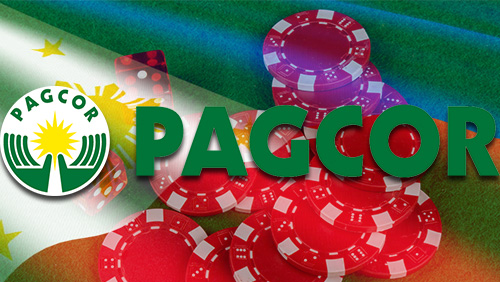Online Gambling Companies In Philippines
This still made from video shows a live stream baccarat game
Chinese companies are circumventing domestic laws that prohibit online gambling by directing their Chinese clientele to their operations based in neighboring countries and regions. The Philippines is reportedly among the most popular places for such operations.
The Philippines Amusement and Gaming Corporation (PAGCOR) has reported a 5.7% drop in income from gaming operations for the first three months of 2020, and with costs not declining as quickly as revenue, profits for the quarter fell by almost 50%. There are basically two types of online gaming licenses in the Philippines. Full License (Online Casino and Sports Betting) Sports Betting License. The difference between the two licenses lies in the application and license fee which we will describe later. Application for online casinos in the Philippines can only be made by companies. While the laws in the Philippines generously allow offshore online gambling, the legal minimum gambling age still applies to this type of gambling entertainment. That means that if an online casino or poker site allows players to register at age eighteen, Filipino players must still wait until they are twenty-one years old to place bets at.
As reported by the Los Angeles Times, Chinese online tycoons have established companies in the Philippines and hired Chinese staff to operate gaming facilities to service players on the mainland. By operating in such a fashion, these companies seek to escape the reach of Chinese authorities.
In its report, the Los Angeles Times notes that among the most popular games accessed via these platforms is “Tencent Every-Minute-Lottery,” which generates winning numbers based on the total number of users logged into a Chinese messaging app.
The report noted that the Philippines has been transformed into a large base for online gambling companies – and it continues to grow bigger.
While online gaming is a regulated activity in the Philippines, residents can only enjoy legal online gaming if the games are licensed and regulated by a legitimate offshore jurisdiction. Authorities in the Southeast Asian country are willing to license online gaming platforms based in the Philippines as long as they do not target Philippine residents.
Most of the sites targeting gamblers in China feature live streams from Manila of baccarat tables replete with croupiers.

Demand from the Chinese market is expected to drive gambling revenue in the Philippines to USD4.1 billion (MOP33 billion) this year, up from about $1 billion in 2016, Philippine government sources say.
But these large sums are still dwarfed by Macau. Last year, gaming revenue in the SAR exceeded MOP300 billion, nine times more than that of the Philippines.
The business is lucrative for the Philippine government. Government sources say that the annual licensing fees for such operations are as much as $140 million (MOP1.1 billion). Last year, there was a revenue increase of more than 11 times the amount generated in 2016, which now makes it the third-largest source of government revenue after taxes and customs duties.


It is estimated that at least 100,000 people from mainland China have moved to Manila to work as gambling company marketing agents, tech support specialists, and engineers catering to the Mandarin- speaking clientele.

Online Gambling Companies In Philippines Contact
“Everybody is after the Chinese customer, because they’re the biggest market and they’re the biggest gamblers,” said Rosalind Wade, the Manila-based managing director of Asia Gaming Brief, a research and consulting firm.
The President of the Philippines, Rodrigo Duterte, who once railed against the industry as a vector for crime, recently called for its expansion.
Online Gambling Companies In Philippines Today
“That gambling-gambling,” Duterte told supporters at a recent rally. “I cannot control it.”
Seemingly contributing to this boom is the announced “realignment with China.” According to the Philippine tourism department, the annual number of Chinese tourists is expected to double within the next two years.
The Los Angeles Times also said that during the course of the investigation, it found that in the Philippine VIP rooms, the biggest bets were being placed remotely via Chinese-speaking staff using tablets and headsets to communicate with gamblers who were watching the live action from a different location.
This “proxy betting,” as the practice is commonly called, is outlawed in all but only a handful of countries because little is known about the remote gamblers. It was banned in Macau by the Gaming Inspection and Coordination Bureau in 2016.
That it is welcome in the Philippines underscores the lengths the country will go to court Chinese money.
According to media outlets in the Philippines, several crackdowns have recently taken place, leading to the arrest of dozens of Chinese staff members from these companies. Reportedly not all of the operating companies and platforms are legal or operating under the licensing of the local gaming regulator.
However, it is also understood that both the Philippines and China have been have been lax in the enforcement of their laws in order to allow the industry to thrive.
Fueled by advancements in computer technology, the Online Gaming industry has become one of the biggest moneymakers in the Philippines today. As responsible online gaming becomes an accepted form of recreation or diversion for a number of Filipinos, the annual profits of online casinos, bingo and sports-betting companies keep increasing at a tremendous rate. PhilWeb, one of the largest online gaming companies in the Philippines today, posted a profit increase of 52% in the first quarter of 2010 alone. Company revenues also rose by 42%, totaling to about Php 239 million. The number is still expected to double, even as the year progresses.
The introduction of new technology has led to the opening of new avenues for the Philippine gambling industry. The first online casino was created by the Philippine Amusement and Gaming Corporation (PAGCOR) in the year 2000. The government later established a competitive gaming industry in 2002, granting control of online casinos to the PhilWeb Corporation. The development of the online gaming industry led to an unprecedented increase in profits for PAGCOR and PhilWeb, both companies raking in a whopping Php 116 million by the end of 2003. Today, the Philippine gambling industry averages a profit of about Php 50 million per month, or Php 1.8 billion per year.
As the online gambling industry continues to expand, more and more Filipinos are discovering the joys of online casinos, online poker, and other Internet betting games. To satisfy the growing demand, the PAGCOR recently established several PAGCOR e-games cafes – Internet shops specifically dedicated to online casino games. Customers can now play a number of online casino games, including poker, roulette, and blackjack, or bet on anything from the latest sporting events, to the outcome of the next election.
CEZA, short for Cagayan Economic Zone Authority, is a government agency responsible for administering tax breaks and other incentives to gambling companies in the country. Based in the Cagayan Freeport Area, CEZA works hand in hand with PAGCOR in managing the different elements of the country’s gambling industry. This is especially true with BPO companies that do not directly engage in gambling activities, but instead broker technical support services to gaming outfits headquartered abroad. These types of companies are required to register with both CEZA and PAGCOR, and obtain operating licenses from CEZA’s designated Master Licensor, the First Cagayan Leisure Resort Corporation (FCLRC).
The FCLRC, located in the Cagayan Special Economic Zone and Freeport (CSEZFP), issues Interactive Gaming Licenses to gambling companies setting up operations in the country. Licenses include all available forms of online gaming, including casinos, sports betting, and lotteries. As the forefront of gaming in the area, First Cagayan regulates and monitors all activities that pertain to the licensing and operation of interactive games.
Companies that register with CEZA enjoy a 4-6 year income tax holiday, free importation of operating equipment, a special tax rate of 5% of the gross income, after the lapse of the tax holiday period, in lieu of all local and national taxes, and other benefits. CEZA also regulates gaming licenses in the country, including those of internet casinos, and online gaming outfits. More and more casinos are now setting up operations in CEZA zones to take advantage of the tax benefits.
According to Atty. Leslie Charlotte Martin, corporate lawyer for Makati-based firm Kittelson & Carpo Consulting, “Internet gambling has become one of the most lucrative industries globally, and now in the Philippines as well. To cater to the growing demand, more and more online casinos and betting companies are setting up operations in the country, and relocating to CEZA zones. The online gaming industry is not only a great moneymaker for the company owners, but can also provide additional employment opportunities for Filipinos, as well as increase the inflow of investments into the Philippines.”
Online Gambling Companies In Philippines International
Online gambling has become one of the most lucrative industries in the Philippines today. Its profits average about Php 1 billion per year. Thus, it is very much apparent that the internet gambling industry is here to stay. The investors can certainly bet on that.